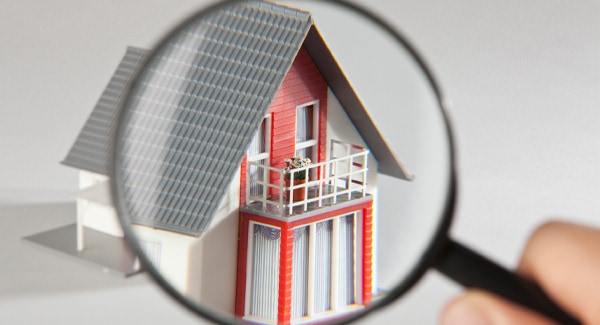Last Updated on May 31, 2023
Buying or selling a home can be complex and emotional, especially if it’s your first time tackling the process. There are many steps to buying a home, even after an offer has been accepted. Buyers and their agents have much to do during a home’s due diligence period. And while sellers’ responsibilities are different, there are just as many on their end.
Among the most important things to plan for during a home transaction are the closing costs. Understanding closing costs and who is responsible for each will ensure that there are no surprises during your home transaction.
Today, let’s break out the typical closing costs of home buyers and sellers, as well as what they mean.
Typical buyer closing costs
Many of the buyer’s costs are associated with their research of the property. The buyer will cover the fees associated with the home appraisal, inspection, and survey (if one is performed). The buyer is also responsible for the title insurance, recording fees for the deed, fees associated with getting the home loan (including origination), and the attorney fee for closing.
Home appraisal
At its core, a home appraisal is a professional assessment of the value of a property. As a buyer, this can tell you how well the home is priced versus how much an appraiser thinks it is worth. It’s also an integral measurement your bank or lender considers when determining how to structure your loan—or whether to give you a loan at all. Appraisers consider the size and features of the home (e.g., square footage, number of bedrooms, etc.), as well as its location, the home’s current condition as observed by the appraiser, and recent sales information for similar properties.
Home inspection
While it may sound similar on the surface, a home inspection is different from a home appraisal, but just as important. During the home inspection, a licensed home inspector will evaluate the visible and accessible systems and components of a home to give you a better understanding of their condition. This often includes the home’s structure, exterior, roofing, plumbing, electrical, heating and air conditioning, interiors, ventilation and insulation, and fireplaces. The home inspector does not address the cost of any recommended repairs or guarantee the home complies with local building codes.
Property survey
A property survey is not a required examination of the property you’re purchasing, but could be helpful if you have questions about the boundary lines, zoning classification, or rights-of-way for the property. Property surveys indicate the lot size and boundaries, as well as a written description of the property. The surveyor will also certify that structures do not violate any local size or proximity guidelines and show you where any underground utility lines are, which could be helpful during any future excavation or construction.
Title insurance
In a nutshell, title insurance protects against loss or damage resulting from defects that affect the title to your home. When you buy a property, the previous owner conveys the title to you as evidence of your full legal ownership. Occasionally, a hidden defect in the title or a mistake in a prior deed, will, or mortgage may give someone else a legal claim against your property. If such a claim is made, title insurance can save you time and money by covering legal expenses and any claims that arise from issues prior to your ownership.
Home loan origination fees
Similar to any commission-based payment, home loan origination fees are charged up front by your lender as compensation for putting your home loan into place. Fees are often quoted as a percentage of the total loan and average 0.5-1.0%.
Attorney fee for closing
You may need to hire an attorney to review the terms negotiated in your purchase contract. An attorney, as opposed to a title company, may handle your closing, as well. These fees usually amount to $500–$1,000, but may be more depending on your situation.
Typical seller closing costs
There were many things to be excited about when you purchased your new home, and not having to pay the real estate commission fees was one of them. As the seller, it is now your responsibility to cover those costs. You are also responsible for the costs of state revenue stamps and certain attorney fees, including faxes, copies, courier to pay off the mortgage, and the deed preparation. If you and the buyer negotiate a home warranty, you are responsible for that coverage, as well (usually covering the first year in the home).
Real estate commission
The real estate commission is a percentage of the sale price that serves as the agents’ fees for service. You will negotiate the commission amount at the time of your listing. The rate varies depending on the level of service your listing agent offers. This commission is then divided between your listing agent and the buyer’s agent in a process called cooperating, or a co-op commission. In traditional home sales, sellers always pay the commission.
State revenue stamps
North Carolina charges an excise tax on home sales of $1.00 of each $500 of the sales price. While the seller typically pays this fee, the buyer must still negotiate this line item with you, so it is written accordingly in the contract. You are then responsible for buying the tax stamp from the Register of Deeds in your county. A land transfer tax of 1% of the sales price is added on top of the excise tax. This is a state tax that is always the seller’s responsibility to pay at closing.
Attorney fees
While buyers typically cover the attorney’s fee for closing, the seller covers other attorney fees leading up to the closing. Those can include the attorney fee for deed preparation. You are also responsible for any fees associated with your specific side of the transaction, including faxes, copies, and courier to pay off your mortgage.
Home warranty
Purchasing a home warranty for the home buyer or transferring an existing home warranty is certainly not a requirement for your home sale. But it does offer valuable protection of your finances and offer incentive to the buyer. Particularly for older homes, not only does it provide an extra incentive for buyers who are concerned about potential costly repairs, but it is available for you in case a major appliance needs to be fixed while your home is on the market. Home warranties average $350–$500 for basic coverage.
Shared closing costs
There are several closing costs that are shared between the buyer and the seller. Your real estate agent can give you a better idea of how these are typically handled for properties like yours. These include prorated property taxes, prorated homeowners association fees, and any recording fees to satisfy the deed of trust.
Prorated property taxes
Unlike the calendar year, the tax year runs July 1–June 30. Unless you’re closing on exactly that day, a seller’s last installment of property taxes will be for only a portion of the time period. The purpose of proration is to fairly determine where a seller’s responsibility for the property taxes ends and where the home buyer’s responsibility begins. At closing, if a seller has not yet made a payment which is due, they are charged with the amount for their portion of the installment. If their last tax payment covered a time period beyond the close of escrow, they are credited for the proration.
Prorated homeowners association fees
As with taxes, your closing date may not line up exactly with the period for a homeowners association (if the property is in one). Prorating HOA fees ensures that neither party overpays for services beyond your ownership of the property.
Recording fees for deed and deed of trust
Depending on your situation, you may be responsible for any recording fees to satisfy the deed or deed of trust. When a property deed is transferred to the new homeowner, the documents must be recorded at your county’s Register of Deeds. In Buncombe County, the recording fee for deeds of trust is $64 for the first 35 pages and $4 for each additional page.
Let’s review: Typical home buyer and seller closing costs
Typical home buyer fees
- Home appraisal
- Home inspection
- Property survey (if desired)
- Title insurance
- Fees associated with getting the home loan, including origination
- Attorney fee for closing
- Prorated property taxes
- Prorated homeowners association fees
- Recording fees for deed and deed of trust
Typical home seller fees
- Real estate commission
- State revenue stamps
- Attorney fees, including faxes, copies, and courier to pay off the mortgage
- Home warranty (negotiable)
- Prorated property taxes
- Prorated homeowners association fees
- Recording fees for deed and deed of trust
Get the help you need with your home transaction from Allen Tate/Beverly-Hanks
Understanding closing costs is just one step to a successful home transaction. Your Allen Tate/Beverly-Hanks agent works directly with you to meet deadlines, distribute documents, and account for all details. Our proactive management and attention to detail will help make sure your transaction is efficient and seamless. Are you ready to begin?
Learn more about buying a home or selling your home with Allen Tate/Beverly-Hanks.
All real estate is local. In order to make confident real estate decisions, it’s important to have timely and neighborhood-specific information. Contact us today to speak with an Allen Tate/Beverly-Hanks real estate agent about buying or selling real estate in Western North Carolina.




